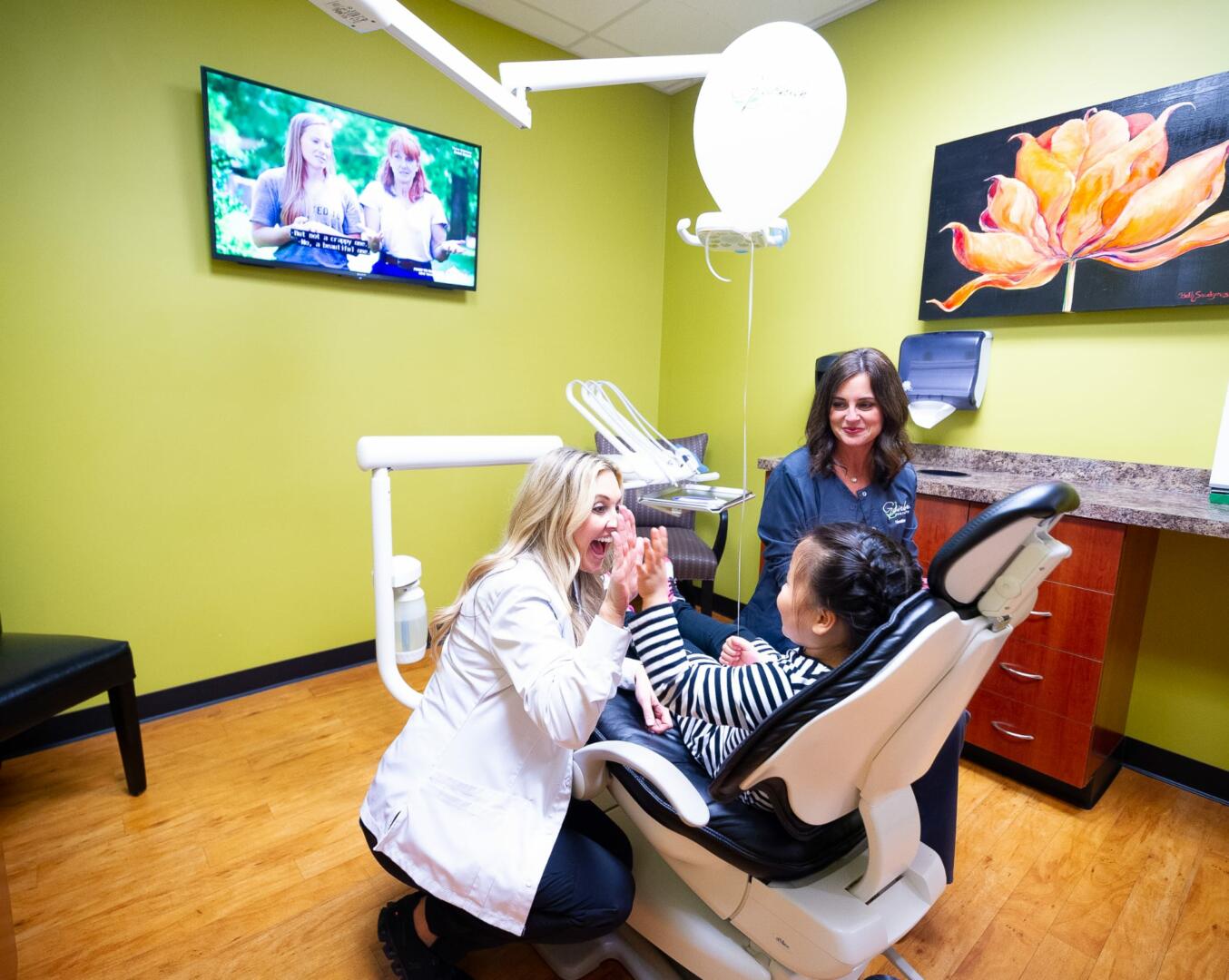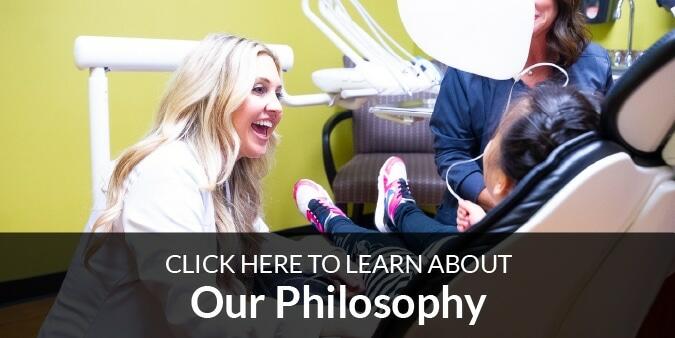When it comes to helping our kids live healthy, happy lives, we will do anything to set our children up for success. We prioritize exercise and outdoor play, we monitor screen time, and we do our darndest to feed our children a nourishing, balanced diet.
While most parents easily keep these basic principles of health top of their minds, their children’s dental health can sometimes fall to the wayside. In fact, 20 percent of children between the ages of 5 and 11 in America have at least one untreated decayed tooth. For kids ages 12 to 19, that number is 13 percent.
We get it, we’re parents too. We know you’d never intentionally neglect any area of your child’s well-being. Life is simply busier than ever, and staying on top of it all can seem like an impossible task. That is why we want to help make healthy dental habits simple. We’ve put together five easy habits that you can start today to set your child up for life-long dental health. Read on to find out how you can implement these simple habits into your daily life.
The Golden Rule of Dental Health: Brush & Floss
It may seem like an overly simple concept, but the most important habit for good dental health is making sure your children brush and floss daily. Beginning when their first teeth emerge, parents can help their children brush their teeth with a small amount of toothpaste and a soft-bristled brush. As your child grows, continue helping them properly brush their teeth at least twice a day — more often can be even better! If your child is reluctant to brush their teeth, there are some fun ways to encourage them! In addition to brushing, your child should floss their teeth at least once per day. Flossing ensures that any built-up or stuck food residue is removed before it causes any sort of unhealthy plaque.
Finding Cavities
Your child can have a cavity and may or may not feel pain. If your child does feel pain, the pain will usually occur when:
- Your child bites down
- Your child eats something sweet
- Your child eats hot or cold foods
Some common non-painful signs and symptoms of tooth decay include:
- White spots on your child’s teeth
- Brown or black stains on your child’s teeth
- Cracks, holes, or other defects on your child’s teeth
Cavities are caused by harmful bacteria contained in the plaque on your child’s teeth. These bacteria produce toxins that mix with the sugars in your child’s food, producing a strong acid. This acid gradually eats through tough tooth enamel, causing a cavity.
Limit Sugar and Starch
We all know that too much sugar does not contribute to a healthy lifestyle, so it’s recommended to avoid over-consuming candy, soda, and other sugary snacks. The thing about sugar, though, is that it can be sneaky! Even relatively healthy foods such as honey, granola, and sweetened yogurt can coat teeth with a sticky layer of sugar. A buildup of excess sugar can cause a variety of dental problems, including tooth decay. For this reason, it is especially important to remind your child to brush and rinse their teeth after consuming sugary foods or drinks.
Eat Plenty of Fruits and Vegetables
Eating lots of fruits and vegetables is a reliable way to incorporate important nutrients, vitamins, and minerals into your child’s diet. But did you know it is also great for your teeth? Fruits and vegetables contain a high water content, which not only helps with hydration but can actually help clean your teeth! Examples of the most dental-friendly fruits and vegetables include melons, cucumber, celery, and citrus fruits.
Calcium Builds Strong Teeth
Did you know around 99% of the calcium in our bodies is stored in our bones and teeth? Calcium is a wonder mineral when it comes to strengthening your teeth! That is why it’s so crucial for children and adults to eat plenty of sources of healthy calcium each day. Calcium can be found in many foods, but a few are super-sources of this important mineral! These include dairy products such as cheese, yogurt, milk, leafy greens, sardines, and salmon, as well as fortified foods such as almond milk, oatmeal, and cereals.
Monitor Pacifiers and Sippy Cups
This can be a tough one! Parents often have a love/hate relationship with pacifiers. We know that your child’s “binkie” may have become a beloved member of their nighttime routine, but it is important to monitor and limit their pacifier use. Prolonged use of both pacifiers and sippy cups can cause serious damage to your child’s teeth. Consistently using a pacifier past the age of two can contribute to misaligned teeth and even change the shape of your child’s mouth. When used all day, sippy cups can increase the likelihood of plaque buildup from the sugary residue, especially on their front teeth. For these reasons, it is recommended that children limit and preferably eliminate pacifier and sippy cup use by 2.5 years old.
How Can I Make Oral Hygiene Fun for My Child?
Everyone, regardless of age, should brush their teeth twice a day and floss at least once. However, children are notoriously stubborn, meaning that you may need to get creative to make brushing and flossing fun. Singing toothbrushes, which play a song the same length of time your child should brush, can help to make brushing interesting. Singing a special song or playing a special game each time your child brushes can also help them look forward to brushing and flossing their teeth.
When Should I Take My Child to My Dentist in Jonesboro, AR
Believe it or not, experts recommend that children see a dentist by their first birthday! This first visit will give your dentist the chance to ensure that your child’s growth and development are on track and also address habits that could pose a problem later on, like thumb sucking or infant tooth decay. Additionally, your child’s first dental visit will allow them to become comfortable with their dentist’s office and help to quell dental anxiety later on in life. As a dentist, I’m here to help guide parents and children through good oral hygiene habits and to help ensure there are no underlying dental issues.
At Gairhan Dental Care, we take extra good care of our little patients. We understand how these early experiences at the dentist can affect the way your child grows up viewing dental care. That’s why our team goes out of the way to ensure that your child has a great experience! Our office is bright and welcoming, and we take the time to get to know your child. We also provide fun, hands-on ways for your child to interact during their exam. Schedule an appointment with us!






